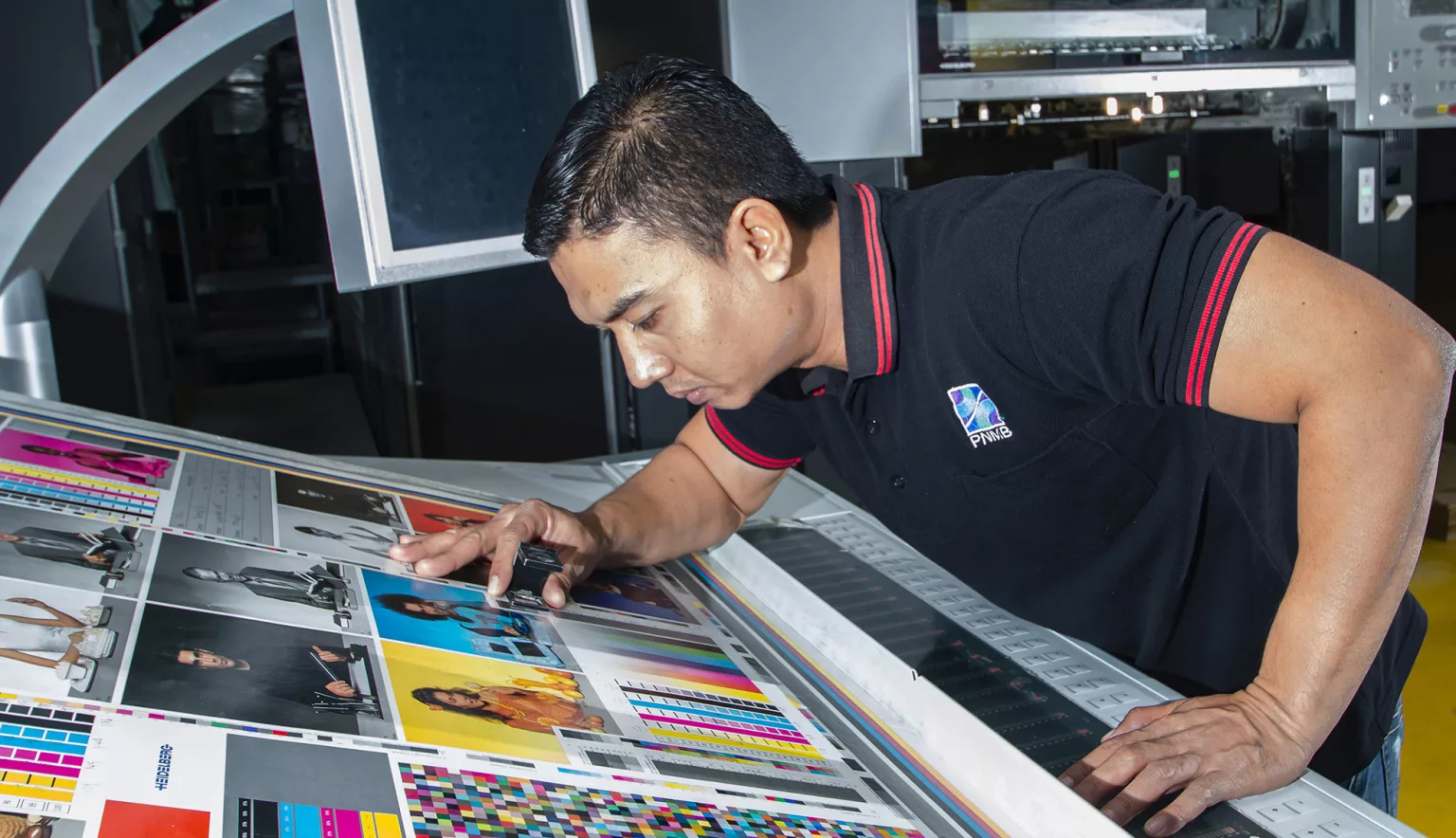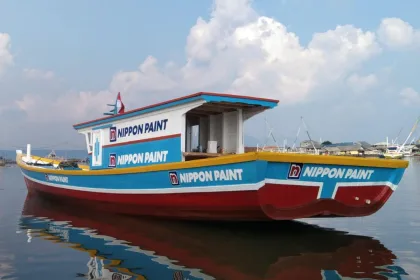Percetakan Nasional Malaysia Berhad (PNMB) has been a Malaysian mainstay since 1888, the organisation now turning to digital solutions and private investment as ways to diversify from its traditional printing base.
THE FUTUREPROOF PRINTER
Asia, it is widely believed, is the home of printing.
As early as the second century CE, the Chinese were said to have discovered how to print, the likes of paper and ink relatively well-established materials by this time.
The modern, mass-producing printing presses arrived much later thanks to German goldsmith Johannes Gutenberg, whose 15th century invention revolutionised the way in which information was printed, chiefly through a mechanised process as opposed to assembly by hand.
The breakthrough kickstarted an industrialisation of printing which continues to serve as a crucial form of information distribution to this very day, even in what is a relentlessly digitising world.
In Malaysia, an organisation synonymous with printing for the last 130-plus years is Percetakan Nasional Malaysia Berhad (PNMB).
Starting out as an official government operation, PNMB’s printed documents were vital to disseminate information, gazetted laws and regulations, official books, manuals and standard operating procedures, the now part-private company responsible for the security and integrity of these documents.
But times do and have changed.
“Digitisation is not a choice but a necessity to survive,” comments Mohamad Bin Abdullah, PNMB’s present day Managing Director. “As horses were replaced by cars, printed products are being replaced by digital products, the movement of newspapers online being a prime example.
“However, print will always be needed but at a smaller scale and volume into a more premium product of aesthetic value – repurposed into the opposite of what traditionally was used.”
PNMB has therefore repositioned itself as a total printing solutions provider, its vision to serve as a world-class, trusted and secure partner of choice, building on the reputation gained since it set up in 1888.
Today the organisation operates with a physical presence throughout Malaysia with 10 branches and outlets, including regional production capabilities supported by more than 1,000 employees. The past few years have also witnessed an increasing shift towards a private customer base, the company now approaching business with a more commercial mindset since the privatisation exercise commenced in 2017.
A JOURNEY TO FINTECH
Indeed, Mohamad’s aim is to increase the proportion of private customers from the 10 percent it is today to 30 percent in the near future.
In order to do this, PNMB has massively diversified its offering way beyond traditional print services, fintech being one such umbrella under which several products and solutions have been recently launched.
“This work is steered by our fintech startup Payfo, which is fully owned by PNMB and based out of Kuala Lumpur,” explains Mohamad. “Our charter is to disrupt the financial space by building innovative products and solutions to augment and assist current needs from both businesses and direct users, and also to provide financial means for the underserved.
“The focus is to build sustainable, scalable business products, built out of an existing need, either through the requests made from our extensive stable of corporate customers or through innovating an existing product or service from within our group.”
PNMB’s fintech portfolio spans several verticals, chiefly wallets, payments, remittance and money exchange, and digital banking solutions.
For instance, Openbills is an aggregated payments platform operating in real time for both corporations and consumers, with users able to make bulk payments and receive rewards for doing so through Joy, another application within the Payfo stable which serves as an agnostic loyalty programme which dispenses cashback for every transaction done on the app.
Bepasar is another useful tool for corporations, specialising in the needs of migrant workers through services such as OTT content, mobile top-ups and digital remittance.
“Any migrant in Malaysia is a potential customer,” adds Mohamad. “And any employer with a large base of migrants has a huge reason to depend on Bepasar to digitise most if not all of their day to day corporate needs, from paying their salaries to monitoring their locations and even managing their work efforts.”
SMART AND SECURE
This is not to suggest that PNMB has abandoned its traditional core of producing quality physical products.
Indeed, bespoke, high-end printing is still carried out by the company, while it has also become renowned for its smartcard capabilities.
Central to this is the Smartcard Technology Centre, a state-of-the-art facility costing 60 million Ringgit ($14.63 million) that spearheads end-to-end card manufacturing and personalisation. Cards are chip-based and integrated with sophisticated software, and able to integrate with any payment gateway for card payment and prepaid systems.
“For our customers this is a total smartcard solution,” says Mohamad. “It can provide long-term efficiency gains and cost savings and, critically, has Payment Card Industry (PCI) compliance for processing and storing information. As well as this, we can incorporate personalisation into the manufacturing process.”
The cards are also secure, this being another area identified by Mohamad as crucial in this era of digitisation.
A specific issue highlighted by the Managing Director is fraud and counterfeiting, something which he describes as more rampant than ever.
To tackle this, PNMB has launched the Identem suite of product authentication and brand protection solutions. These solutions are also designed to complement PNMB’s new focus into security label and tax stamp products.
The Identem technology platform enables brand owners to protect their brands and products from counterfeit through a secure product serialisation process using the IdentemTagapplication, which then enables product authentication and end-to-end supply chain traceability on the IdentemTrace platform. The platform utilises specialised mobile applications for regulatory agencies or supply chain participants to allow product verification and supply chain monitoring, as well as the IdentemEngage mobile application for consumer brand engagement.
For projects involving tax stamps, the IdentemEnforce system offers an integrated solution that empowers regulatory agencies to manage their digital tax stamp programme efficiently and transparently through complete authentication, production monitoring, traceability and regulatory management functionalities.
CONTINUING THE JOURNEY
As well as overseeing the development and launch of a vast range of new, technology-driven products and solutions, Mohamad has also had to embed something of a cultural migration into PNMB.
The company has taken on around 150 new digitally savvy people since the MD joined in 2017 as part of the organisation’s privatisation exercise, joining the 1,100-strong workforce, many of whom have been with the firm for well over a decade.
“Readjusting the mindset from a government company to a commercial enterprise embracing digital innovation has been one of the biggest challenges we have encountered during the past three years,” Mohamad reveals. “People remain our most important asset, and we have embarked on a high-performance culture programme to develop our employees.
“This is not about equipment, capabilities or process – that is the easy part. Rather, it has been about embracing challenges and moving out of our comfort zone, encouraging a creative mindset with an emphasis on learning and upskilling.
“I believe this is represented in our values which are represented by PECTIN, standing for professionalism, excellence, creativity, teamwork, integrity, and nimbleness. We have certainly made progress, but I am never satisfied that the job is complete.”
Progressing this cultural shift is a key priority for the MD and PNMB as they look ahead to a busy year, the company set to continue incorporating elements of authentication and traceability, augmented reality and financial technology into what are perceived to be traditional printing products.
Concluding optimistically, Mohamad says: “I want us to expand and diversify our customer base, products and services, building on the progress we have made over the past three years.
“For our customers, the ultimate aim is to enable them to utilise existing technologies to make their processes more efficient and cost-saving by integrating our solutions with technologies they are already using. I am sure that 2020 will be a busy year for PNMB.”
































